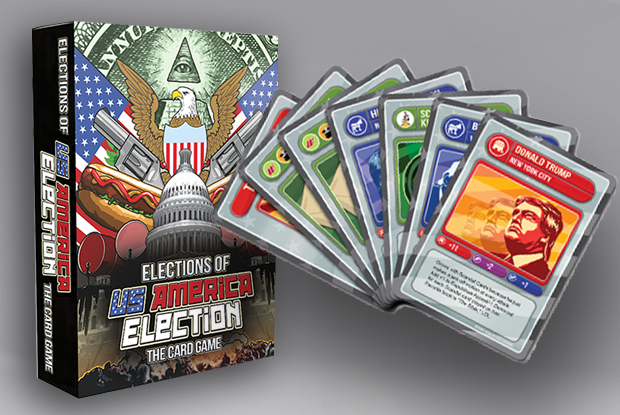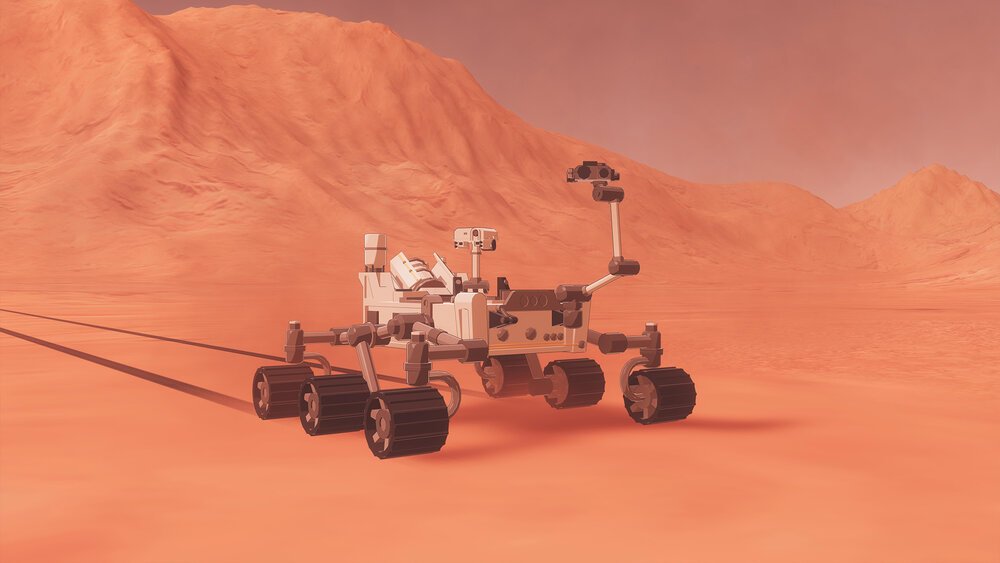GameTheNews
GameTheNews was an initiative of Auroch Digital Ltd, which aimed to shine a new light on current events and news topics. An evolving and exploratory project, we aimed to examine new aspects of these stories in a way that other mediums couldn't, by placing players directly into the narrative. We’ve had our games covered in Wired, The Guardian, The Huffington Post and Kotaku, among others.
Below is a retrospective from Tomas Rawlings on what Game the News initiative was, the impact it had, and what we achieved. First written 27th June 2018
GameTheNews Initiative 2012-2018 – A Retrospective by Tomas Rawlings, Auroch Digital, Prev Studio Director
So let’s start at the start. What is a newsgame? I define it as a short playable experience that uses news or real-world issues to create a game that engages the player in those very issues. Sometimes they are alternative methods of reporting events, sometimes they are more advocacy games and other times (and more commonly) they are like a playable political cartoon. However, like almost everything in life and culture, the dividing line of ‘newsgames’ and ‘applied games’ (a broader term for games that do more than just entertainment including educational games and neurogaming) and just ‘games’ is blurry at best. Which is a good thing.
The best way to show this is with some examples; so our Endgame: Syria is clearly a newsgame – made in 2 weeks and focused on a snapshot of where the Syrian civil war was at that time, it puts the player in the role of running the often fractious rebel factions as they fight the regime. Foreign powers weigh in on different sides and the outcomes means you can lose the peace even as you win the war. Sadly, it is a prescient game predicting the attritional nature of the conflict. It aims to explore the conflict, the participants, the countries involved and the potential outcomes.
If to compare that game to an early newsgame like September 12th, which also looks at conflict, this time the War on Terror where it makes a simple but powerful point about how the casualties of war fuel more war. That might seem a distance from just ‘games’ but it’s not – take Call of Duty and the controversy of playing the Taliban or the Modern Warfare the controversial ‘no Russian’ levels. All the examples I’ve cited so far are all games reflecting political themes drawing from real-world situations. While some examples are not ‘newsgames’, they are ‘games with news in them’. Throwing a few more examples of the blurry lines – Valve’s recent troubles with running a platform and moderating (or not) content such as this school shooting game at a time where the news cycle is full of heart-rending stories about school shootings. At this point we move from ‘games with news in’ to ‘games with news in, making news’.
Stepping to the side to give some more context, it we look at the gorgeous ‘Never Alone‘ bills itself as a playable documentary about the traditional Iñupiaq tale ‘Kunuuksaayuka’. I’d also like to highly recommend the game Liyla and the Shadows of War, about a the life a Palestinian civilian which, after an outcry, was finally allowed onto the App Store. Something Endgame:Syria was denied. I also want to give special mention to some of the (if not ‘the’) earliest newsgame produced by the suffragettes campaign to engage people in their cause. It is also worth a note to say how much more ‘gamic’ news sites have got – from progress bars, to small interactives within stories, I’ve noticed how the need to make a story ‘stickier’ means the designers of them are turning to conventions you more commonly see in gaming. It’s not exactly how I imagined newsgaming to pan out exactly, but it is what I expected to see news sitting doing to keep visitors engaged.
Sigh. Can’t we keep politics out of games? The short answer is no.
OK, so newsgames are explicitly about news and real-world events, so they are also explicitly about politics. All the games we (as in GameTheNews) created wear their source material on their sleeve, so to speak, so it is clear what we’re doing when we make them. Games like Endgame:Syria also have links to sources to show how we arrived at creating what we did. So ‘newsgames’ have politics in, what about ‘games’? They do too, it’s just not always as clear as with newsgames that it is there. Games are made by people and people are political. Even the act of trying to be apolitical, is a political choice and tends to indicate a luxury to even have that option at all. For many the politics picks them regardless. I know some might not like that conclusion, but it is the truth of human societies. If you think a game does not have politics within it, look deeper – choices like coop or vs, design framings on character choices, selected (or not) distribution channels, player interaction methods – all have politics with a small ‘p’ encoded in them.
This tweet is a great example of how that works:
Do I think games must have overt politics within them? No. I think it’s just stating a self-evident fact that all cultural artefacts we create be they films, song, books, games and so on – encode in our personal ideas, our likes and dislikes and our own political experience. That’s one then the great things about games development broadening out – so many stories, so many games told in so many ways. For example I loved finding out that Phil Fish the designer of Fez drew from his parent’s divorce in the creation of the game, using the core narrative about putting a broken world back together, into the game. You can play it and enjoy it if you didn’t know if was there – but it’s there – and personally I liked playing it knowing that. Without that personal experienced encoded into the design I suspect it would be a lesser game. In one game it may have be a divorce, while another it is alcoholism, in yet another prejudice or bullying and another might be an existential cry of rage over climate change. It is all creative fodder that feeds the process, conscious or not.
So what did GameTheNews Achieve?
Conscious here of Ian Bogost’s tweet about how his applied games really didn’t work out how he’d thought they would.
We also saw a lot of that too – we’ve had huge amounts of coverage in major media outlets of our work including BBC, The Guardian, The Economist, Yahoo news and more. We’ve also had a lot of industry and academic interest in our work. So I thought I’d highlight a few things that I’m especially proud of:
We’ve had around 210,000 people play our games and recorded a total number of plays at around 600K.
Endgame: Syria being part of the debate around what games are and how games should not be seen as lesser form that other creative mediums.
Teachers using our newsgames, for example here.
Making a huge number of games on a huge number of topics.
Our newsgame work resulting in being nominated for two innovation awards and awarded a ‘Tech for Good’ by the Nominet Foundation.
Making the first newsgame for the BBC news helping to engage young people with voting.
Speaking on games and democracy (a topic that arose from our newsgaming work)
A PhD being done on one of our newsgames.
Being part of the first ever newsgame hack.
Successfully crowdfunding a physical newsgame based on US Elections, which reviewed well
So what’s happening with GameTheNews now?
Here’s the tricky bit. Making newsgaming work commercially is hard. While you can get good numbers in terms of players and strong numbers on total times of interaction on a topic, we’re not quite there in terms of scaling newsgames to work fully commercially. Some news organisations (like the BBC) have been very forward thinking in commissioning them. However most have not. Back in 2012/13 when we started, the news industry was going through waves of consolidation, closures and cuts. Asking for funds to do new and seemingly risky projects was an ask too far for most (I know, I did a lot of pitches around then!) Then, as now, newsgames are still mainly a grassroots movement. In some ways that is a core strength as it means those games that get made are done out of a passion for their topic. However, to ‘mainstream’ the concept we need to see investment in not only the staff to make it happen, but the tools to make them happen faster. While gamedev tools have come a long way recently and making a game has never been easier – we are still not yet at the point of the super-rapid game creation that newsgaming needs to match the fast-moving news cycle. (Our fastest was this one done in a single day). Without these tools, newsgames sadly occupy a sort-of ‘novelty’ position within the tool kit of journalism. We experimented with a range of commercial methods over the years of the initiative – ads, free, paid, commissioned and crowdfunded. We made games that attracted players, but much like a news site itself does, to scale that up needs a higher output and serious investment in people and resources. We just never had that (though we tried to get it).
What are you saying, it’s not you it’s me?
I’m saying that newsgames will continue to evolve. For us they have already had a huge impact on how we make all types of game. When we made NarcoGuerra we moved from researching online to going out and interviewing an expert and using that to guide and inspire us. The game I thought I’d make at the start of the dev cycle of NarcoGuerra was very different from the game we actually released. That more journalistic research was the crucial element there. We’ve also internalised the rapid prototyping that creating newsgames needed, evolving it to allow us to concept a video game right at the start and fast so we can nail the gameplay which in turn helps us plan and create better games overall.
Newsgaming in now in our gamedev-DNA
That’s had a huge impact on our development practices; we now aim to do much more talking to experts and those in the know than before. So, for example Dark Future: Blood Red States, draws lots of inspiration from the real science of climate change and augmentation of the human body. We were lucky enough (thanks to the support of the Wellcome Trust) to get to talk to scientists who work in these areas and turn their comments into part of the game’s narrative.
We’ve taken this concept even further with a more recent project, Mars Horizon, our game about running a space agency and guiding humanity towards becoming a multiplanetary species. We’re working with the UK Space Agency, and you can here on our podcast how we translated what they do into our game. We’re talking to more people from the space community, adding more content based on what we learn. It’s one of our most ambitious games to date in terms of vision, it’s also now our biggest ever sort-of-newsgame, based on how much of current science and space news we’re encoding into the game.
So in summary we’re now folding-up our GameTheNews initiative as a stand-alone project as the ideas, conventions and methodologies we developed from it now live with Auroch Digital itself. We’ve got some amazing projects coming up – which draw from news and current affairs – and we’d love you to join us for them; so please do sign-up to our (now unified) newsletter for all our Auroch Digital projects – which include games that would once have been done under our GameTheNews name. Now they are all just Auroch Digital. All our past newsgames and articles will continue to exist at GameTheNews and on any hosted platforms for as long as the technology holds its own, for like a newspaper fading in the light, time atrophies away what we’ve made. Allo future games – news or otherwise – we make are now going to be done just as Auroch Digital.
Some Important Thanks
We’ve worked with so many amazing people over the course of GameTheNews that I suspect I’m going to miss a few people out – but you know who you are! We want to spend special thanks to all the developers we worked with. To Professor Janet Jones and her team at London South Bank University who’s an amazing academic studying newsgames at a amazing institution. To the React project for funding a concept based on Jack the Ripper (do sign up to the email list re this!!), to all the journalists who covered our work, to Marcus Bosch and his team for organising the first newsgame jam. To the many events that have hosted us for talks and the like including PLAY Hamburg, Games for Change, Scoopcamp and all the rest. To the Abertay Games Fund who funded our original newsgaming work. To Nate Laxnon, then of Wired.co.uk for partnering with us first. To the Huffington Post for hosting some of our first newsgames. To Transform Drug Policy Foundation and Danny Kushlick for helping us with NarcoGuerra. To Anna Doble for inviting us to help them create BallotBots. Thanks to the people of Wonkette for the amazing US Elections of US America: The Card Game. Also huge thanks all the staff team and freelancers we’ve worked with as without you we’d not have made the historic games we did and there would be no Auroch Digital in the form it is in today!




